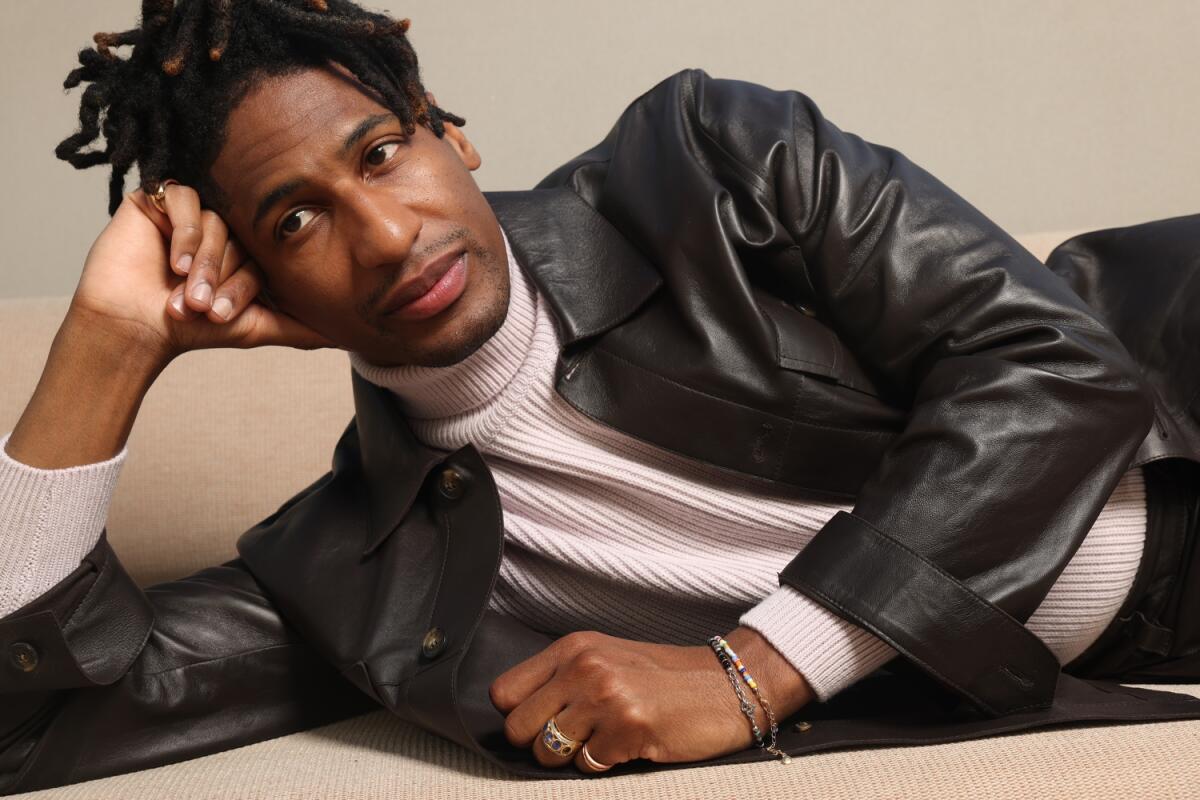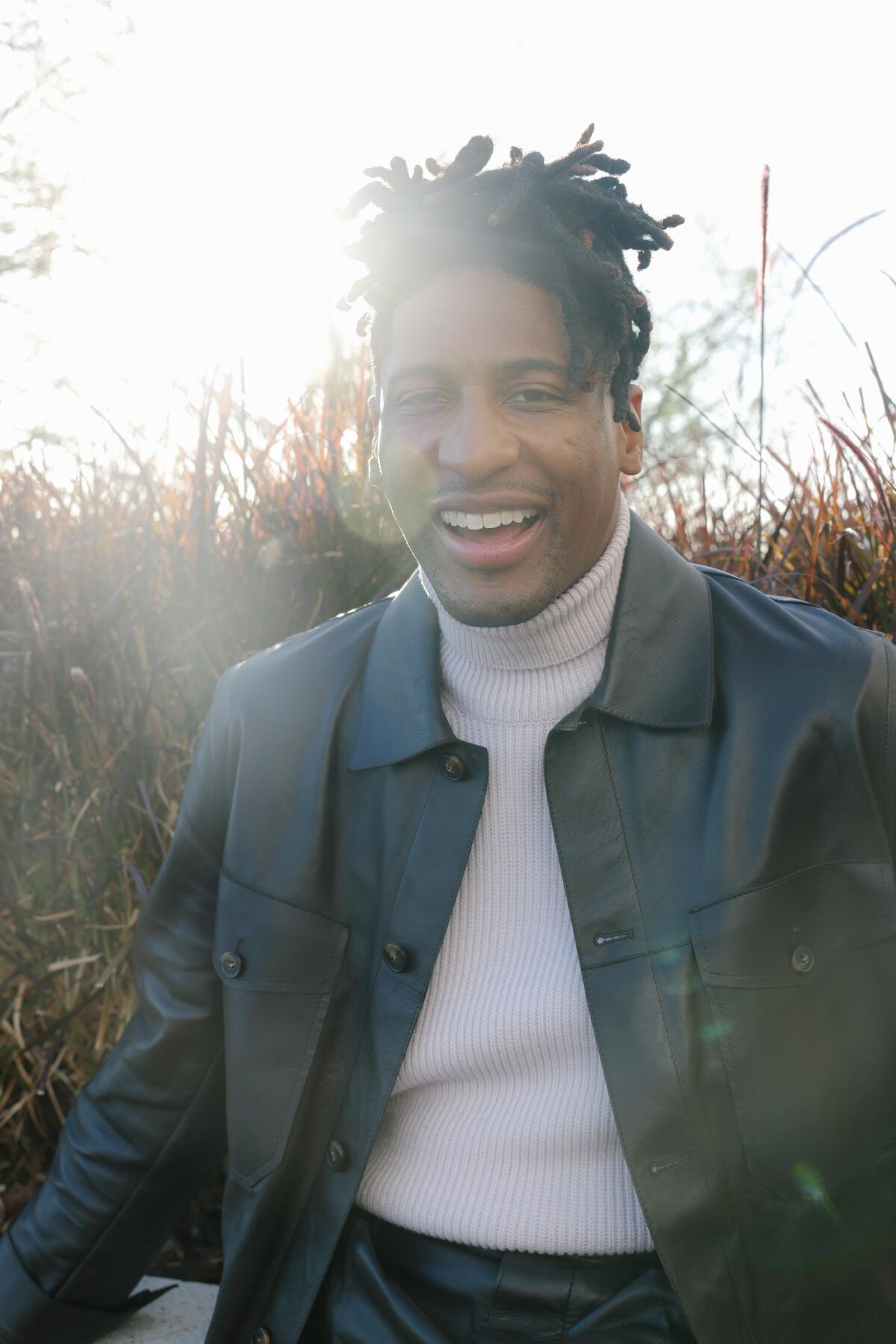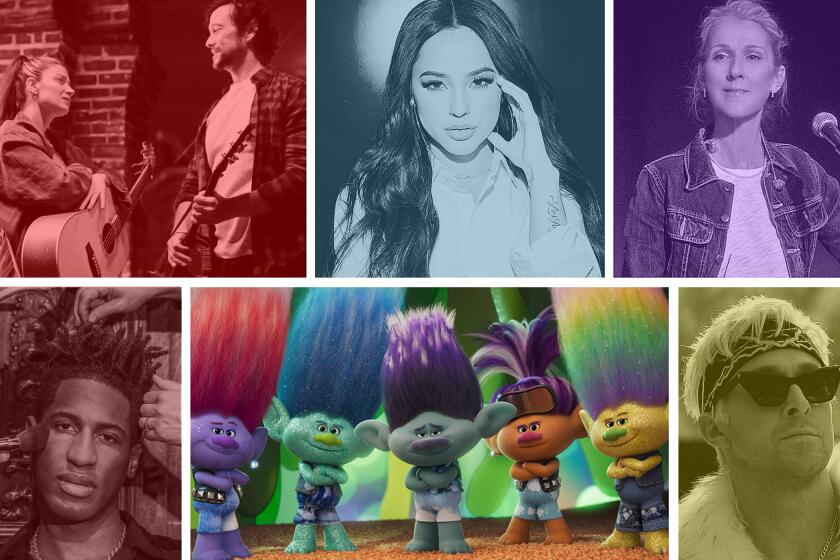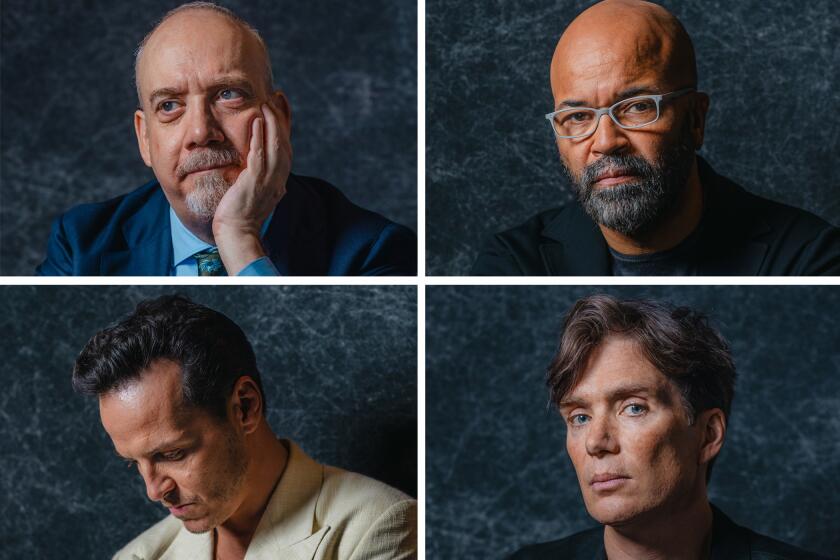How making music became an act of survival for Jon Batiste

They met more than 20 years ago, as tweens at a summer band camp. They’ve been through so much together. And, caught on camera in the documentary “American Symphony,” they’ve seen the most dizzying of highs and frightening of lows. So what message would Jon Batiste send his wife, writer Suleika Jaouad in song? A heartfelt “It Never Went Away.”
“We’ve been in each other’s lives since 12 and 14 years old. And every time I see her, I feel that love that has never went away,” he says. “And this human condition and this truth of the duality of things has never went away.”
The film captures composer-singer-multi-instrumentalist Batiste at a pinnacle — 11 Grammy nominations spanning genres including jazz, R&B, roots and classical (winning five), fame as the band leader on “The Late Show With Stephen Colbert” and deep in the composition of a new symphonic work he would premiere at Carnegie Hall.
And it finds him and his longtime love marrying ... and navigating the grueling treatment of her resurgent leukemia.
The 2024 Oscars Original Song Contenders Playlist includes Americana, Latin dance pop, acoustic guitar-driven ballads and, yes, showtunes.
It’s enough to wear anyone down, even the characteristically upbeat Batiste. In one sequence, with his wife receiving her second bone-marrow transfusion, he struggles to make himself meet his professional obligations. But as it has been for his entire life, music proved crucial to him that day.
“Making music became an act, and creativity really became an act, of survival for my wife and for myself,” Batiste says. “It became medicinal. There was this period of five weeks when she was in the hospital for a stretch and we didn’t know if she was going to make it.
“She started painting because she couldn’t write; her vision was blurred. This is not in the film, but I would write her these lullabies. It was an act of survival for us, for her to have this restful aura in the room that she could paint to and then fall asleep to; for me to have this outlet, this way of showing my love. We wouldn’t even speak sometimes. It would just be painting and the composition of the lullabies and then subsequently playing it on loop in the room. So that’s what the music [of that time] sounded like. It sounded like those lullabies. It sounded like survival.”
Batiste says filmmaker Matthew Heineman had crafted multiple endings to “American Symphony,” finally settling on one Batiste didn’t like (largely because he had gotten used to the previous ideas, he thinks now in retrospect): images of Batiste and Jaouad on a country walk, followed by a flowing river at deep-blue dusk. Heineman wanted him to write a song to go with the footage.

“I couldn’t write something cold. So I went back to those lullabies,” Batiste says. “And then I loved the ending. It became so clearly the right thing.”
“It Never Went Away” is a simple, spare piano ballad — this, after witnessing Batiste’s amazing breadth and depth of musical ability. It’s as direct as a love song can be, while simultaneously tapping into cosmic notions of creativity, one of the forces that binds Batiste and Jaouad.
“That’s one of our realizations, that the duality that’s the symphony of life — it’s not duality. It’s the oneness of all things. Someone is being born, someone is passing away. There’s tragedy and triumph always at once.
“There’s a stream that we dip into when we are creative,” he says. “It’s almost like an invisible river; a divine stream of consciousness and we become the vessel, pouring that into the world. That is also what we’re talking about.”
Our BuzzMeter film experts are back to predict what Oscar voters will nominate in 10 Academy Awards categories. Vote in the online polls!
But most of all, the song is an unadorned message directly to his wife, hence its simplicity, its sparseness, the intimacy of the vocal.
“It’s me singing to Suleika. That’s what it is,” he says. Batiste credits co-writer Dan Wilson, whom he calls “a song therapist,” with drilling down into the meaning of the words. At Wilson’s urgings, the lyrics moved away from metaphor to something “as direct as a phone conversation.”
“It never went away / The feeling’s just the same / Every time I see your face / It’s never going away,” Batiste sings, before admitting, “I thought I was a wise man / When you plan, God laughs.” It’s quite a statement from someone at the top of his profession, brought crashing to Earth by hard realities he can’t control. The two are doing well, with her health much improved, according to Batiste, and his career continuing to soar, with six more Grammy nominations for 2024 including the “big three” — record, album and song of the year. But there’s little doubt how close they remain to their original tie.
“A summertime adventure,” he sings wistfully. “That’s what we were meant for.” It’s as specific a reference as it sounds.
“We met at a summer band camp. That was a summer of adventure,” he says. “And since that summer, we have shared many. That’s one of the sweet spots in our union. Our spirits thrive in this summertime-adventure reality. It’s a fantastical reality when we’re together on road trips — the life that was unclear if it would continue.”

At the same time, for someone with Batiste’s preternatural musical fluency, the very act of feeling his fingers on those keys, playing those piano notes with that meaning behind them moves him to another place.
“It feels like we are together in the ocean, in the celestial stream of life and it’s washing over us. That’s something I also felt from looking at” the footage at the end of the film, he says. “I was thinking of when you see that river moving and this idea what we were doing with the lullabies and how they were structured to feel like water, the flow of water, like that celestial stream of consciousness.”
He played the song for his wife without telling her it was for her.
“She heard it and knew. It was not something I needed to explain,” he says, smiling. “She was in tears. She’s always the first to hear my music, but this was special, very special, for many reasons.
“She said, ‘It’s perfect as it is. Doesn’t need anything more. No additional instrumentation. It’s pure.’ ”
“Songs are made so that we can know that we’re not alone. When you are so direct and you’re sharing a diary-entry level of insight in a song, it’s really people reading their own diary, which is what they want. They want to read their own diary. And us being vulnerable in this way, in this art is something that I’m grateful to share with others. I believe that it can bring a lot of people healing and bring people solace because many are going through their own version of this. We’re not unique in that.”
More to Read
From the Oscars to the Emmys.
Get the Envelope newsletter for exclusive awards season coverage, behind-the-scenes stories from the Envelope podcast and columnist Glenn Whipp’s must-read analysis.
You may occasionally receive promotional content from the Los Angeles Times.













